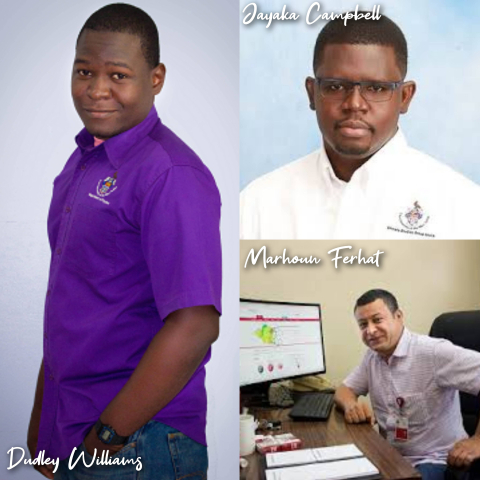

As heatwaves become more frequent and intense across the Caribbean, particularly in Jamaica, researchers at The University of the West Indies (UWI) are exploring sustainable solutions to tackle rising temperatures—without relying on electricity.
Recent studies have shown that high temperatures now dominate more than half of the hot season in the region, highlighting the urgent need for energy-efficient cooling technologies. In response, a research team from the Department of Physics is investigating the use of Phase Change Materials (PCMs) as a passive cooling strategy for buildings.
PCMs are substances that can absorb and store thermal energy. In this application, the material freezes at a near room temperature—around 24°C—during cooler night hours and then gradually releases that stored coolness during the day, helping to maintain a more comfortable indoor environment without the need for air conditioning.
In August 2023, the team conducted a study in Kingston that demonstrated the feasibility of this approach. They found that nighttime temperatures were consistently low enough to freeze PCM with a 24°C solidification point, even without any electricity. Building on this result, the researchers used data from 25 automated weather stations provided by the Meteorological Service of Jamaica to develop a PCM suitability map. The map highlights areas across the island where nighttime conditions meet the solidification criteria for PCM-24°C.
Significantly, the findings show that over 60% of nights in Jamaica’s mountainous interior are suitable for the use of PCM-based cooling. This makes it a viable and sustainable alternative for reducing indoor heat stress, particularly in off-grid or low-energy-use settings.
The study is being led by graduate student Dudley Williams, with academic guidance from Dr. Jayaka Campbell and Dr. Marhoun Ferhat, both Lecturers in the Department of Physics, along with collaborator Jean-François Dorville, CEO of the Caribbean Geophysical and Numerical Research Group in Guadeloupe . Their work paves the way for further innovations in climate-resilient building design and offers hope for a cooler, more sustainable future in the Caribbean.
Reference: Dudley Williams, Jean-Francios Dorville, Jayaka Campbell, and Marhoun Ferhat “Experimental Investigation of Jamaica’s Climate Nocturnal Potential to Solidify a Phase Change Material” The West Indian Journal of Engineering Vol.47, No.2, January 2025, pp.36-44
Follow the Faculty of Science and Technology on Instagram @uwimona_fst and on Facebook at The Faculty of Science and Technology, The UWI Mona. For inquiries, WhatsApp us at 1-876-552-4691, call us at 1-876-927-1660-9, or email us at fst@uwimona.edu.jm.
Published on 02 May, 2025